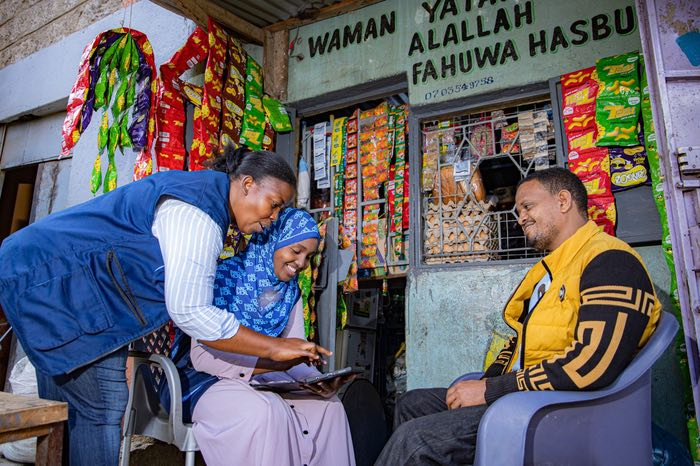In regions often defined by displacement, fragility, and economic exclusion, few institutions see entrepreneurship as a viable path forward. Inkomoko, however, does.
Founded in Rwanda and now operating across East Africa, Inkomoko is a business accelerator with a distinct focus: supporting entrepreneurs in refugee camps, secondary cities, and post-conflict areas. Whether it’s a Congolese artisan in a Kenyan camp or a young mother starting a poultry farm in rural Rwanda, Inkomoko sees small business ownership as a scalable solution to poverty, dependency, and instability.
By combining access to capital, tailored training, and market linkages, Inkomoko has built one of Africa’s most impactful—and unlikely—entrepreneur support systems.
Name: Inkomoko Entrepreneur Development
Founded: 2012
Headquarters: Kigali, Rwanda
Operating Countries: Rwanda, Kenya, Ethiopia, South Sudan
Clients Served: 75,000+ entrepreneurs (and counting)
Target Groups: Refugees, host community SMEs, youth, women, micro-enterprises
Services: Business training, 0% interest loans, advisory, market access
Partners: UNHCR, Mastercard Foundation, IKEA Foundation, Kiva, African Development Bank
Sector Focus: Agriculture, retail, services, light manufacturing
While most startup accelerators focus on high-growth tech ventures in capital cities, Inkomoko has carved out a niche that is both more difficult and more essential: micro-entrepreneurs in fragile economies.
Its typical clients are not pitching to VCs—they’re rebuilding their lives. Many are refugees living in long-term camps or marginalized youth in underserved areas. But with the right support, they turn modest grants or loans into real businesses: salons, tailors, vegetable traders, mobile money agents, carpenters, livestock owners.
Through a curriculum delivered in local languages and a community-based coaching model, Inkomoko provides:
-
Business skills training tailored to informal sectors
-
Access to affordable capital (often at 0% interest)
-
Legal and financial literacy support
-
Linkages to markets and buyers
-
Follow-up advisory to help businesses grow or formalize
The result: thousands of micro and small businesses across Africa that are generating income, hiring neighbors, and restoring dignity.
Refugees as Employers, Not Just Beneficiaries
One of Inkomoko’s most powerful ideas is that refugees are not a burden—they’re an untapped economic engine. In Kakuma (Kenya), Dadaab, and Mahama (Rwanda), Inkomoko clients have gone from aid recipients to job creators, hiring locals and paying taxes.
This reframes how both governments and international agencies view displaced populations: not as temporary problems, but as part of long-term national development.
By partnering with UNHCR and host governments, Inkomoko helps formalize refugee businesses, opening access to ID systems, financial services, and public procurement.
Inclusive Finance, Built for the Base
A core feature of Inkomoko’s model is its 0% interest loan fund, made possible through blended finance from philanthropic, multilateral, and crowd-lending sources like Kiva.
This financial lifeline fills the credit gap left by commercial banks and MFIs, which typically avoid low-income or refugee borrowers. For many clients, it’s their first step toward credit histories, savings accounts, and investment readiness.
Inkomoko also provides Sharia-compliant loan products, supporting entrepreneurs in Muslim-majority refugee communities and respecting cultural financial norms.
What the Ecosystem Can Learn
Inkomoko’s model offers compelling insights for development partners, private sector players, and inclusive finance innovators:
-
Fragility is not failure. Conflict-affected areas still have demand, labor, and innovation—just underserved systems.
-
Refugees are investors too. Given capital and support, displaced people often reinvest in their communities at higher-than-expected rates.
-
Acceleration must be localized. Translating Western accelerator playbooks doesn’t work—programs must be reengineered for informal markets.
-
Partnership is leverage. Collaboration with NGOs, local governments, and donors enables scale without dilution.
-
Growth is not always exponential—but it is exponential in impact.
The Road Ahead
Inkomoko is on track to serve 100,000 entrepreneurs by 2026, expanding into additional displacement-affected regions and frontier economies. The organization is also building a regional data hub to track job creation, revenue growth, and community impact across its client network.
As humanitarian aid budgets shrink and refugee situations become protracted, Inkomoko’s work offers a sustainable alternative: invest in people, build economies from the ground up, and let dignity do the rest.
About the Author
Aurel Kinimbaga is a contributor specializing in innovation, business strategy, and inclusive growth in Africa. He writes on entrepreneurship and the economic trends shaping the continent’s future.
